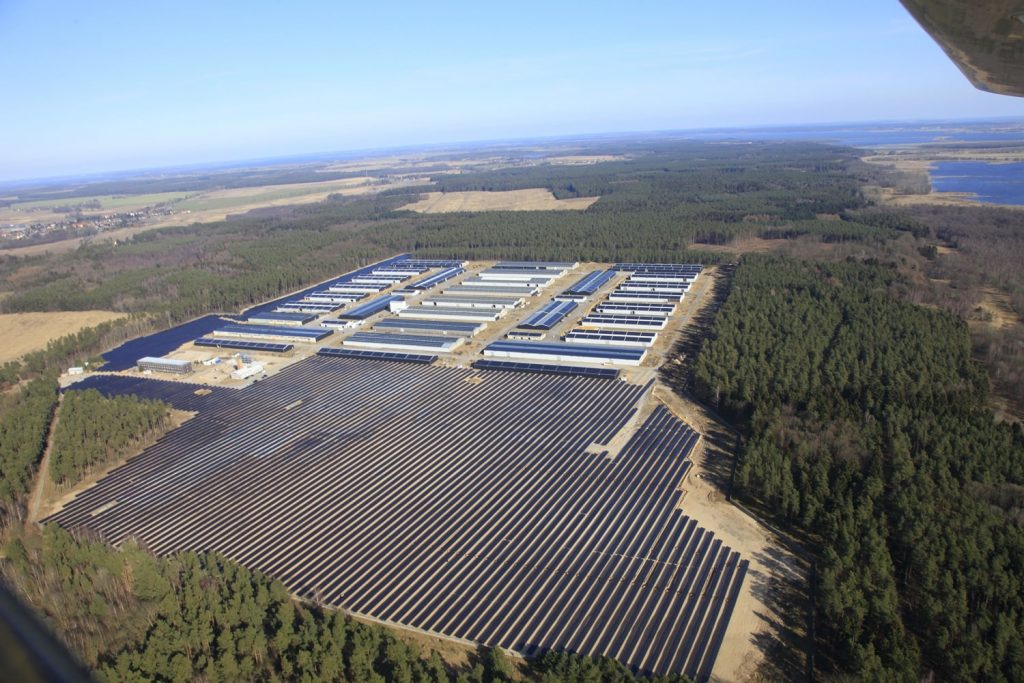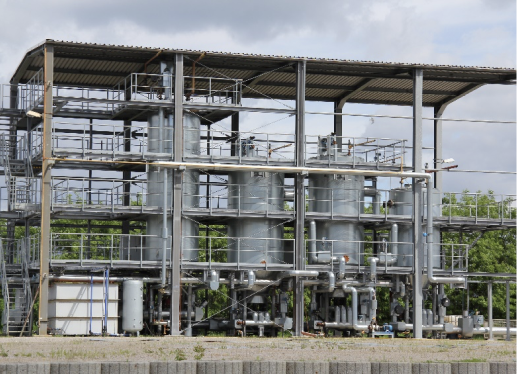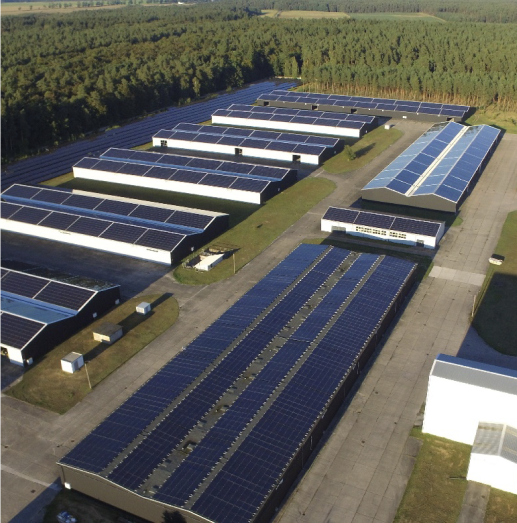This is where we will grow our cannabis
Our Growing Location
The Deutsche Anbaugesellschaft DAG GmbH will begin recreational cannabis cultivation in Germany at its location in Mecklenburg-Western Pomerania, provided the legal foundation is laid in Germany. The site covers a total area of 630,000 square meters, of which 120,000 square meters is hall space. DAG has over 35 closed halls available for the cultivation of recreational cannabis.

Total Area
spread over 35 Halls
closed Halls
Cannabis Plants
Own Photovoltaic System
Photovoltaics refers to the conversion of sunlight into electrical energy using solar cells. Photovoltaics have long been considered the most expensive form of electricity generation. This has changed drastically over the years, largely due to the significant cost reductions in system components. Photovoltaic systems, which are installed in locations with favorable conditions, are today the cheapest form of electricity generation. In Germany, too, the electricity generation costs of newly built large-scale photovoltaic systems are lower than those of all other fossil or renewable energies.
A large-scale photovoltaic system is installed at our location. The photovoltaic system is installed on both the roof and the open spaces. This means we use the maximum available area to generate energy using photovoltaics. All of the photovoltaic modules will be replaced in 2023, so that the system will soon be up to date with the latest technology and can generate the maximum amount of electrical energy. The system installed at the site will then have a total output of 55 MW peak, which corresponds to 55 million kWh. With this performance, the entire cannabis production can be covered 100% by renewable energy. Due to the intensive lighting of the plants, the energy consumption in indoor cannabis production is extremely high. This makes it important for us, especially in today’s times of energy crisis, in which prices have risen sharply and are not stable, to be independent of the large energy suppliers and to be able to plan for the long term with cheap and clean energy. Our large price advantage for the large amounts of energy required gives us an enormous production advantage over other companies.
Recycling Plant

The specially developed recycling plant installed at the site allows agricultural waste (biomass) and sewage sludge to be converted into valuable and limited raw materials such as carbon and phosphorus in an environmentally friendly process. This process is called hydrothermal carbonization.
Indoor cannabis cultivation creates a large amount of organic waste because almost exclusively the flowers of the plants are processed. The recycling plant can convert this organic waste into valuable activated carbon, which can later be used, among other things, to filter water in sewage treatment plants. The raw materials obtained by recycling sewage sludge, such as phosphorus, are further processed into plant fertilizer. Phosphorus is one of the most important nutrients for cannabis plants.
Recycling converts any type of waste into valuable raw materials, which can then be reintroduced into the natural cycle. The sustainable management of the entire site is one of the central topics in the company for Deutsche Anbaugesellschaft DAG GmbH.
Self-Sufficient Water Supply
The site has seven wells of its own and therefore has a self-sufficient water supply. The water quality is ideal for growing cannabis and is constantly checked through analysis.
Cannabis cultivation requires large amounts of water of the appropriate quality. The cannabis plants must be provided with sufficient water, especially during the short and rapid growth phase. A lot of water is also required for the large amounts of fertilizer that are mixed directly on site. For proper cannabis cultivation, there is hardly anything more important than the right water quality and irrigation technology. It is the water that is responsible for transporting the nutrients and oxygen needed through the plants. So if there is something wrong with the water quality, it can have a negative impact on overall plant growth.
The PH value is particularly important for growing cannabis. Cannabis can only grow well in a very narrow pH range. This is between pH 6 and pH 7. Only in this area can the plants easily absorb all nutrients such as nitrogen, phosphorus and calcium. If the pH value of the water deviates even slightly, the plants can no longer absorb certain nutrients, which immediately has a negative effect on plant growth. For example, if the pH of the water is too high, the plants can no longer absorb iron, while if the pH is too low, the plants will not receive enough calcium and magnesium.

Sewage Treatment Plant
For complete self-sufficient management, the site also has its own sewage treatment plant. This is state-of-the-art (02/2023).
There are four different stages in water treatment.
Mechanical water treatment
In a first step, the still completely untreated wastewater is mechanically cleaned, which removes around 20 – 30% of the solids it contains.
Chemical wastewater treatment
In this stage, chemical processes are used to treat wastewater. For this purpose, chemical compounds are used to produce the legally prescribed water guidelines. Chemical wastewater treatment in sewage treatment plants includes neutralization, disinfection, phosphate precipitation, nitrogen elimination, de-icing and manganese removal.
The biological cleaning
The water that has been pre-cleaned in the mechanical cleaning stage now enters the so-called aeration tanks, which are often designed as circulating tanks. This is where biological cleaning takes place.
Nanofiltration
In the fourth and final cleaning stage, membrane and filter processes are used. In some cases, this cleaning stage is combined with the chemical processes of precipitation and flocculation. For example, this is how the flocculation filtration method is created. Precipitants and flocculants are added to the wastewater, which leads to the formation of flakes of the substances to be separated. The wastewater with the flocculated material is then passed through a cloth or sand filter. It slowly seeps through the filter layer. Even the smallest organic suspended matter is removed. After passing through all stages, water samples are taken again and the water quality is tested. Only when the legally required parameters are met is the purified water returned to the water cycle. Growing cannabis involves adding large amounts of fertilizer to the plants. By putting your own sewage treatment plant into operation, the contaminated water can be treated and reused immediately on site. The own treatment of the water is also an important prerequisite for the self-sufficient and sustainable management of the site.
Interested in the DECT token?
The Deutscher Cannabis Token (DECT) is the only cryptoasset in the world to offer the direct linking of a token to a real cannabis plant. Each token holder is entitled to up to 20 percent return per year via NFTs, for the life of our company.
